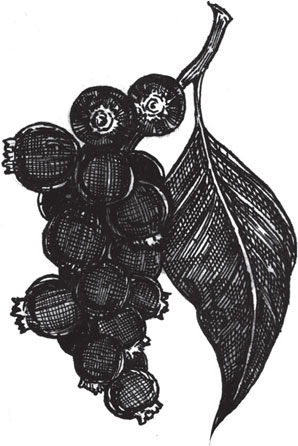• Kao, L. W., & Nañagas, K. A. (2006). Toxicity Associated with Carbon Monoxide. Clinics in Laboratory Medicine, 26(1), 99–125.
Мышьяк
• Ventura-Lima, J., Bogo, M. R., & Monserrat, J. M. (2011). Arsenic toxicity in mammals and aquatic animals: A comparative biochemical approach. Ecotoxicology and Environmental Safety, 74(3), 211–218.
• Palma-Lara, I., Martínez-Castillo, M., Quintana-Pérez, J. C., Arellano-Mendoza, M. G., Tamay-Cach, F., Valenzuela-Limón, O. L., Hernández-Zavala, A. (2019). Arsenic exposure: A public health problem leading to several cancers. Regulatory Toxicology and Pharmacology, 104539.
• Fowler, B. A., & Weissberg, J. B. (1974). Arsine Poisoning. New England Journal of Medicine, 291(22), 1171–1174.
Свинец
• Rana, M. N., Tangpong, J., & Rahman, M. M. (2018). Toxicodynamics of Lead, Cadmium, Mercury and Arsenic-induced kidney toxicity and treatment strategy: A mini review. Toxicology Reports, 5, 704–713. doi:10.1016/j.toxrep.2018.05.012.
Фосфин
• Nath, N. S., Bhattacharya, I., Tuck, A. G., Schlipalius, D. I., & Ebert, P. R. (2011). Mechanisms of Phosphine Toxicity. Journal of Toxicology, 2011, 1–9.
Таллий
• Lennartson, A. (2015). Toxic thallium. Nature Chemistry, 7(7), 610–610.
• Viraraghavan, T., & Srinivasan, A. (2011). Thallium: Environmental Pollution and Health Effects. Encyclopedia of Environmental Health, 39–47.
• Mulkey, J. P., Oehme, F. W. (1993). A review of thallium toxicity. Veterinary and Human Toxicology, 35, 445–453.
Бензол
• Loomis, D., Guyton, K. Z., Grosse, Y., El Ghissassi, F., Bouvard, V., Benbrahim-Tallaa, L., Straif, K. (2017). Carcinogenicity of benzene. The Lancet Oncology, 18(12), 1574–1575.
• Вредные химические вещества: Углеводороды, галогенпроизводные углеводородов. Справочник. Л.: Химия, 1990. С. 115–140.
Цианиды
• Morocco, A. P. (2005). Cyanides. Critical Care Clinics, 21(4), 691–705.
Бензпирен
• Phillips, D. H. (1983). Fifty years of benzo(a)pyrene. Nature, 303(5917), 468–472.
• Das, D. N., & Bhutia, S. K. (2018). Inevitable dietary exposure of Benzo[a]pyrene: Carcinogenic risk assessment an emerging issues and concerns. Current Opinion in Food Science.
• Boyland, E., & Green, B. (1962). The Interaction of Polycyclic Hydrocarbons and Nucleic Acids. British Journal of Cancer, 16(3), 507–517.
ТХДД
• Chapman, D. E., & Schiller, C. M. (1985). Dose-related effects of 2,3,7,8-tetrachlorodibenzo-p-dioxin (TCDD) in C57BL6J and DBA2J mice. Toxicology and Applied Pharmacology, 78(1), 147–157.
• Ngo, A. D., Taylor, R., Roberts, C. L., & Nguyen, T. V. (2006). Association between Agent Orange and birth defects: systematic review and meta-analysis. International Journal of Epidemiology, 35(5), 1220–1230.
Акролеин
• Stevens, J. F., & Maier, C. S. (2008). Acrolein: Sources, metabolism, and biomolecular interactions relevant to human health and disease. Molecular Nutrition & Food Research, 52(1), 7–25.
• Abraham, K., Andres, S., Palavinskas, R., Berg, K., Appel, K. E., & Lampen, A. (2011). Toxicology and risk assessment of acrolein in food. Molecular Nutrition & Food Research, 55(9), 1277–1290.
Метанол
• Kruse, J. A. (2012). Methanol and Ethylene Glycol Intoxication. Critical Care Clinics, 28(4), 661–711.
• Vale, A. (2007). Methanol. Medicine, 35(12), 633–634.
Белый фосфор
• Химическая энциклопедия / Редкол.: Зефиров Н. С. и др. М.: Большая Российская энциклопедия, 1998. Т. 5. 783 с.
Хлор
• White, C. W., & Martin, J. G. (2010). Chlorine Gas Inhalation: Human Clinical Evidence of Toxicity and Experience in Animal Models. Proceedings of the American Thoracic Society, 7(4), 257–263.
• Zellner, T., & Eyer, F. (2019). Choking agents and chlorine gas – history, pathophysiology, clinical effects and treatment. Toxicology.
Фтор
• Kirkpatrick, J. J. R., Enion, D. S., & Burd, D. A. R. (1995). Hydrofluoric acid burns: a review. Burns, 21(7), 483–493.
Эндрин
• Honeycutt, M., & Jones, L. (2014). Endrin. Encyclopedia of Toxicology, 344–347.
Сероводород
• Malone Rubright, S. L., Pearce, L. L., & Peterson, J. (2017). Environmental toxicology of hydrogen sulfide. Nitric Oxide, 71, 1–13.
Фосген
• Li, W., & Pauluhn, J. (2017). Phosgene-induced acute lung injury (ALI): differences from chlorine-induced ALI and attempts to translate toxicology to clinical medicine. Clinical and Translational Medicine, 6(1).
Иприт
• Ghabili, K., Agutter, P. S., Ghanei, M., Ansarin, K., & Shoja, M. M. (2010). Mustard gas toxicity: the acute and chronic pathological effects. Journal of Applied Toxicology, 30(7), 627–643.
Люизит
• Goldman, M., & Dacre, J. C. (1989). Lewisite: Its Chemistry, Toxicology, and Biological Effects. Reviews of Environmental Contamination and Toxicology, 75–115.
Зарин, табун, VX и «Новичок»
• Abou-Donia, M. B., Siracuse, B., Gupta, N., & Sobel Sokol, A. (2016). Sarin (GB, O-isopropyl methylphosphonofluoridate) neurotoxicity: critical review. Critical Reviews in Toxicology, 46(10), 845–875.
• Волковский Н. Л. Отравляющие вещества нервно-паралитического действия // Энциклопедия современного оружия и боевой техники. СПб.: Полигон-Аст, 1997. Т. 1. С. 69.
• Munro, N. (1994). Toxicity of the Organophosphate Chemical Warfare Agents GA, GB, and VX: Implications for Public Protection. Environmental Health Perspectives, 102(1), 18–37.
• Nepovimova, E., & Kuca, K. (2018). Chemical warfare agent NOVICHOK – mini-review of available data. Food and Chemical Toxicology. Vol. 121, pp. 343–350.




